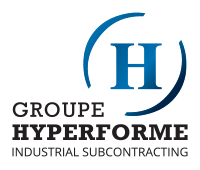In this article, we delve into the various risks associated with industrial subcontracting and how they can affect your business. In addition, we explore strategies to mitigate them so that you can safeguard your company’s success in the ever-changing landscape of subcontracting.
Top X Risks Related to Industrial Subcontracting
Financial Risks
While construction contracts typically outline payment terms and schedules, contractual risk remains a concern due to various factors such as disputes or budget constraints. Therefore, managing payment timelines and ensuring prompt payments is crucial to mitigate financial risks associated with industrial subcontracting.
One of the main financial risks associated with industrial subcontracting is the potential for payment delays. This can lead to strained relationships between prime contractors and subcontractors and can even result in project delays or increased construction costs. To mitigate these risks, it is essential to always partner with reliable industrial subcontractors.
Quality Control Risks
Subcontracting can bring about certain risks that may affect the overall quality of the final product. Here are four key risks associated with subcontracting in terms of quality control:
- Lack of skilled workers: Subcontractors may not have the same level of expertise or training as a company’s own employees, leading to potential mistakes or subpar workmanship.
- Inadequate equipment and materials: Subcontractors might not have access to the same high-quality equipment and materials as prime contractors, compromising the quality of the work being done.
- Poor management and communication: Without effective oversight, subcontractors may not adhere to project specifications or communicate issues promptly, resulting in lower standards.
- Consequences on services offered: If subcontracted work does not meet expected levels of quality, it could lead to delays, rework costs, and damage to a company’s reputation.
Quality Management: A Challenge for the Industrial Subcontracting Sector
Intellectual Property Risks
When engaging in industrial subcontracting, it is crucial to be aware of the potential intellectual property risks that can arise. If you don’t protect your company’s intellectual property, it may be compromised or stolen by competitors. You should have robust measures in place to safeguard your valuable intellectual property when entering into subcontracting agreements. Don’t forget to establish clear contract terms with subcontracting service providers to mitigate intellectual property risks.
Supply Chain Risks
When managing your supply chain, it’s important to assess potential vulnerabilities and implement proactive measures to minimize disruptions. Occupational injuries, equipment damage, and the handling of hazardous materials are some of the key risks that need to be considered.
You should ensure that your subcontractors have appropriate liability insurance coverage to protect against occupational injury claims and equipment damage. Additionally, implementing strict safety protocols for handling hazardous materials can help prevent accidents and environmental damage. By addressing these supply chain risks proactively, you can safeguard the safety and reliability of your operations.
Legal Risks
Promptly addressing legal risks protects your business from potential liabilities and ensures compliance with applicable laws and regulations. When it comes to industrial subcontracting, there are several legal liabilities that you need to be aware of. For instance, misclassifying workers as independent contractors instead of employees can lead to legal consequences and potential liability. It is important to understand the distinction between these two types of workers and ensure that you are meeting all the necessary insurance requirements for each category.
Four Essential Documents to Succeed Your Industrial Subcontracting Project
Reputation Risks
As a principal contractor, construction manager, or construction firm involved in subcontracting work, it is crucial to be aware of the potential risks that can impact your reputation. By doing so, you not only protect your brand but also attract new customers who value ethical and responsible contractors.
Safety risks, for example, can have a dire effect on a company’s reputation. Failure to provide adequate protective equipment or implement proper safety measures can lead to accidents and injuries on the job site, tarnishing your image as a responsible and reliable contractor. In addition, failing to follow environmentally-friendly practices can lead to negative publicity and damage your standing within the community.
Communication Risks
Effective communication is essential to ensure successful collaboration in subcontracting projects. Clear communication helps foster trust, enhances collaboration, and minimizes potential risks in subcontracting projects.
However, there are several communication risks that can hinder the smooth flow of information and jeopardize the outcome of a project:
- Language barriers: When working with subcontractors from different countries or regions, language differences can lead to misinterpretations and miscommunication.
- Lack of clarity: Unclear instructions or ambiguous communication can result in errors and delays in project execution.
- Poor documentation: Inadequate documentation of project requirements, changes, or agreements can lead to confusion and disputes down the line.
- Lack of responsiveness: Delayed or unresponsive communication from either party can impede progress and cause frustration.
To mitigate these risks, it is crucial to establish clear channels of communication, provide detailed instructions, maintain accurate documentation, and ensure prompt responsiveness throughout the subcontracting process.
Ethical Risks
Occupational health and safety should be a top priority for all subcontractors to minimize the risk of injury and maintain a safe working environment. Companies must uphold a high standard of integrity and ensure that all parties involved follow ethical guidelines. Failure to address ethical concerns may have real consequences, such as legal action, reputational damage, or even loss of life. Therefore, it is crucial to carefully select reliable subcontractors who prioritize ethical practices and have a strong track record in health safety within the manufacturing supply chain.
8 must-know solutions for your needs in industrial subcontracting
Technological Risks
As a construction contractor, you rely heavily on advanced construction technology to ensure the successful completion of complex projects. However, when you subcontract certain tasks, such as the hauling of equipment or the use of specialized mechanisms, there is always a risk of encountering technological challenges.
For example, the compatibility between different technologies used by various subcontractors throughout the project chain can become an issue. If these technologies do not integrate seamlessly, it can lead to delays and cost increases. Moreover, the use of heavy equipment and gas materials introduces additional risks in terms of safety and environmental impact.
Labor Risks
If you don’t properly address labor risks, you could face issues such as worker shortages, disputes, and non-compliance with labor laws.
Consider the following:
- Worker shortages: Without effective workforce planning and management, you may struggle to find enough skilled workers to meet project demands. This can lead to delays and increased costs.
- Disputes: Failure to establish clear contractual agreements and enforce proper working conditions can result in conflicts between subcontractors and their employees. These disputes can disrupt productivity and damage your reputation.
- Non-compliance with labor laws: Ignoring or misinterpreting labor regulations, including those related to social security or wages, can attract legal action from employees or government agencies. This not only leads to financial penalties but also tarnishes your company’s image.
Industrial Subcontracting Services
The best way to deal with the risks associated with industrial subcontracting is to team up with a reliable partner capable of efficient work and clear communication. At Group Hyperforme, we specialize in providing companies with the best end-to-end subcontracting services, adapting to the particular needs of every client and project. We can offer you a large range of services, including metal processing, laser cutting, and automation technology. Together, we can maximize your operational efficiency and drive your business growth.
SEO Glossary






